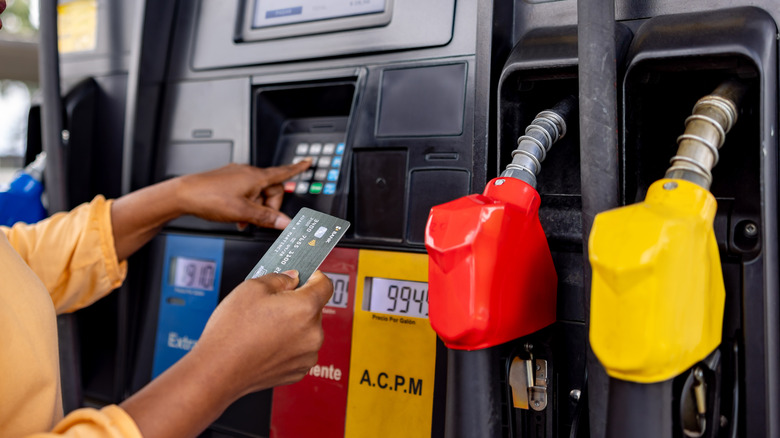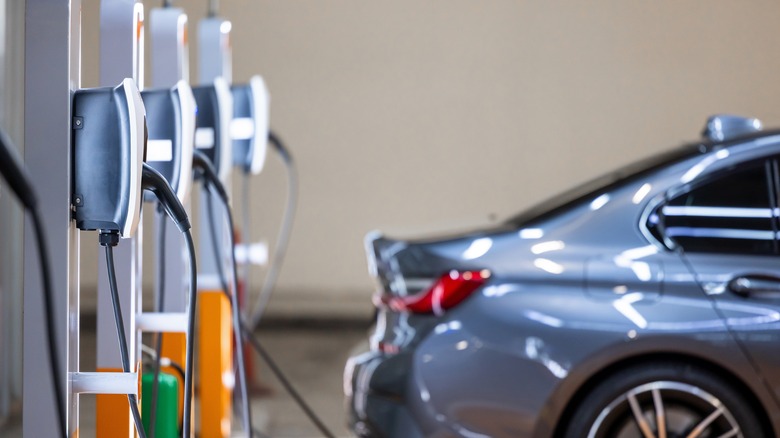How Much Cheaper Is It To Drive An Electric Vehicle Than A Gas Car In 2025?
When faced with the daunting task of purchasing a new car, the choice between buying a gas-powered car or an electric vehicle (EV) can be a complex one. Unless you are motivated by protecting the planet, the choice ultimately comes down to the lifetime cost of each type of car. Which one will be cheaper to own overall? How big of a range does this electric car get over the gas model?
Though EVs have been experimented with for a very long time, it wasn't until the 1990s that they hit their stride. This was thanks in part to the 1990 Clean Air Act Amendment and the 1992 Energy Policy Act. Ongoing research into the impact of climate change and the role transportation plays in that has driven a boom in the EV industry.
Generally, EVs are cheaper to own than gas cars. Factors like fuel savings over time and the steadier electricity costs versus gas costs really deliver big on savings. However, gas cars still have some savings to offer when it comes to upfront purchase costs and insurance.
When electric vehicles are cheaper than gas cars
It's cheaper to pay to charge your EV than it is to fill your tank with gasoline. A 2024 report from Energy & Innovation Policy & Technology LLC highlighted the EV savings per fill-up per state compared across a few different car models. Let's take the Toyota Camry, known for being small and efficient, against the average EV alternative. The EV saves $25 per fill-up in most states, and on the west coast saves about $35. If we compare it to a Ford F-150 truck, the average EV savings is $35, with some states being a little less and others a little more.
The savings go beyond just the cost to fill up. Electricity prices tend to be more stable and regulated on a local level, so what you get at the Tesla Supercharger stations shouldn't change that drastically. However, gas prices are determined by the global market. They can swing widely if disruptions happen, including blows to international relations.
Generally, EVs cost less for maintenance and repairs because they tend to have fewer moving parts. However, that can vary, especially if your EV is from a small manufacturing company. In those cases, replacement parts have to come directly from the company rather than third-party suppliers, which can make them more expensive. Also, not every car repair shop is prepared for EV repair, which can force you to have to go to more expensive locations.
When gas cars are cheaper than electric vehicles
According to 2025 data from Kelley Blue Book, gas cars are still cheaper to purchase. The average new vehicle price is $48,841 as of July 2025, while the average price for an electric vehicle on the market was $55,689. However, EV prices have lowered by about 4% year-over-year, so this gap may close in time as EVs become more widely used.
Gas cars are cheaper to insure, though the exact amount can vary based on where you live, the vehicle, and your driving history. A factor that generally influences EV insurance being more expensive is living in a state with a low EV adoption rate, which means less infrastructure to charge the batteries and fewer repair shops ready to handle an EV. According to data from Insurify, the top three states with the most expensive comparable EV insurance are Arkansas, Pennsylvania, and Idaho. The states with the least difference in cost are New Jersey, California, and Maryland.
Overall, electric vehicles on average cost less when comparing them to gas cars within their first seven years of ownership. The savings on fuel and the generally lower maintenance costs tend to offset the higher upfront price tag and the insurance. Though it can vary widely depending on where you live and the vehicle you have, an electric vehicle typically costs thousands of dollars less overall to own.


